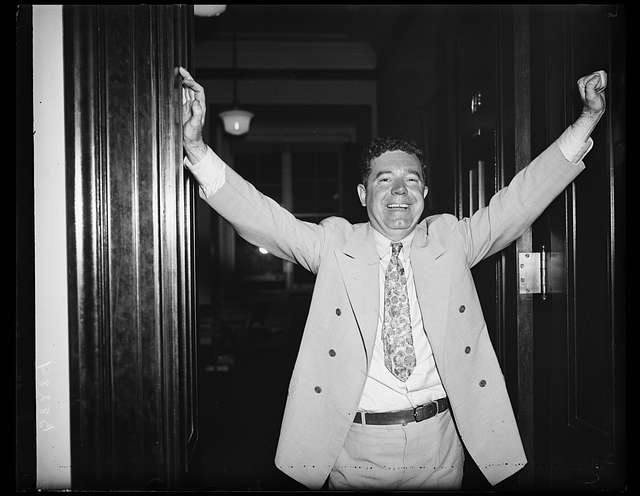The Republican attorney general of Montana last week issued a binding opinion about “critical race theory,” or put another way Austin Knudsen stirred the simmering pot of history erasure.
In Tennessee, the governor, Bill Lee, a mechanical engineer by training who clearly missed taking any history electives in college, signed legislation that, as the Associated Press reported, bans “teachers from teaching certain concepts of race and racism in public schools, where teachers risk losing valuable state funding if they violate the new measure.”

Idaho, Oklahoma and Iowa have also passed this senseless legislation – a dozen other states entertained proposals of one kind or another – that is really aimed at keeping the culture war at a rolling boil. The controversy has literally nothing to do with American history and everything to do with the pursuit of grievance and anger that drives the overwhelmingly white, nativist wing of the Republican Party.
Idaho’s embrace of this assault on history and free inquiry resulted in outright elimination of funding “to support social justice ideology student activities, clubs, events and organizations on campus.” The would-be governor of Idaho, Janice McGeachin, has now added her own Joe McCarthy twist to the saga with an “indoctrination task force” aimed at rooting out “teachings on social justice, critical race theory, socialism, communism, (and) Marxism.”
In the Montana case, the small thinking conservatives in charge of state government were immediately slammed by human rights activists, teachers, the American Civil Liberties Union and a host of others. Travis McAdams, with the Montana Human Rights Network, said the attorney general’s opinion “creates unnecessary confusion around racism and how it impacts people in Montana.” Montana’s top legal officer and the state school superintendent, who asked for the opinion, McAdams said “are implying that discussions about real-life examples of discrimination, bias, and privilege are somehow racist, and that is completely false.”
The folks behind these proposals, and one suspects most of them really couldn’t define what precisely they want to ban, have actually selected an auspicious moment in which to roll out a national discussion of racism and white privilege. They are casting a spotlight on how the overwhelmingly white advocates of these moves seek to re-write history.
How inconvenient for the Idaho lieutenant governor and the Montana attorney general that their crusade just happens to coincide with the remembrance of the worst race riot in American history, a radical bit of white supremacist mayhem and murder visited on the African American residents of Tulsa, Oklahoma on May 31 and June 1, 1921.

Few atrocities in American history have been so completely covered up, denied and re-written as what happened in the prosperous, black Greenwood neighborhood of Tulsa one hundred years ago. Historian Scott Ellsworth, a Tulsa native, has written one of several new books about the horrible history.
As the New York Times said in its review: “Among white Tulsans, Ellsworth encountered a mix of shame and defiance. Photographs and official records had disappeared. Someone had even cut out relevant parts of The Tulsa Tribune before the newspaper was committed to microfilm. Black Tulsans, too, had their own reasons not to revisit what happened. What they had lived through was horrific — Ellsworth himself has likened it to an American Kristallnacht. Many of those who had survived didn’t want to burden their children with such trauma.”
It should be noted that at least 300 Tulsa African Americans died in the riot, a number that almost certainly understates the death toll, and millions of dollars of property was destroyed. No one was ever charged, insurance claims were disallowed, no reparations have been paid, and until lately no comprehensive accounting has been attempted. This is what erasing history looks like.
Karlos Hill, a historian at the University of Oklahoma, has published a photographic history of the Tulsa Race Massacre. “An extensive race massacre photo archive exists,” Hill has written, “because so many white participants desired to visually represent and share with other whites their role in the violent destruction of the Greenwood District. White Tulsans’ eagerness to photograph the community’s devastation was reflective of turn-of-the century lynching culture, in which photography was central.”
Tulsa in 1921 is just one example, one horrible example, of how our nation’s history of racism and white supremacy has been systematically ignored. Perpetuating the myths that these things didn’t happen or weren’t all that important distracts from the continuing struggle to bring about greater racial and class reconciliation.
Without confronting the past we cannot confront the present. It’s really just that simple.
Dana Thompson Dorsey, an education professor at the University of South Florida, told the Iowa Capitol Dispatch recently: “If you’re going to say that racism can’t be discussed, or critical race theory cannot be in civics or any type of history courses, you’re saying that racism did not exist in America and does not exist in America. That’s not true.”
“You’re going to be mis-educating students, un-educating students and not allowing them to learn the real history of the United States of America.” Dorsey stresses that real teaching about racism utilizes primary sources, the documents that detail the history.
Do we really want to put the writings of a Fredrick Douglass or a Dr. Martin Luther King, Jr., or the story of courage and struggle of a Chief Joseph off limits in American classrooms? It’s clear that this wave of punitive legislation and teacher intimidation is aimed squarely at such an outcome.
The United States is a great, diverse, complicated country. Our collective past exhibits both glory and grief, heroism and heresy. We should not shy from grappling with the full measure of that history.
The Constitution speaks of forming “a more perfect union.” It does not say it is already perfect.
We study history in all its messy, contradictory, troubling, ennobling and confusing complexity because history helps us understand where we are going as people, as a society, as a country. We won’t ever get better – more perfect – by denying our past.
—–0—–
Additional Reading:
For your consideration…a couple of other things I found of interest this week…
Time to End the Filibuster
A really good overview of the current debate in Washington about changing Senate rules. Darrell Erhlick of the Daily Montanan with good insight here.
“While the name has its roots in the 18th Century (with pirates nonetheless), the concept and practice in the United States Senate is much younger, not being implemented in a modern form until 1917. Known officially as ‘Rule 22’ in an arcane set of parliamentary rules for America’s upper legislative chamber, the rule has changed and morphed into what a panel of experts has described as a ‘minority veto’ of legislation, requiring most laws to receive 60 votes – a supermajority – rather than a simple majority of 50-plus-one.”

Native Tribe in Maine Buys Back Land Stolen 160 Years Ago
It’s part of a growing movement.
“It’s a spiritually important place for the tribe, filled with graves from devastating smallpox, cholera and measles outbreaks caused by white settlers.
“In 1794 it was officially granted to the tribe by Massachusetts for their service during the revolutionary war. But after 1820, when Maine became its own state, colonialists changed its title, voiding the treaty. In the 1851 census there were 20 Passamaquoddy living there, in 1861 there were none.”
A New Government in Israel. What It Means for the U.S.
“The new government will be a welcome respite for a U.S. president busy with domestic politics and eager to avoid a fight with Israel. The new prime minister, the right-wing Bennett, will be preoccupied with managing an unwieldy coalition. He’s likely to lower the temperature with Washington, temporarily subvert Netanyahu’s obsession with blocking the Iran nuclear accord, and try to refrain from provocative actions toward Palestinians certain to rile his centrist and left-wing partners and collapse the fragile government.”
The Bipartisan Appeal of Ted Lasso

I love the series and am glad its coming back. Apparently not everyone in Europe agrees.
“In truth, people overseas might not be as charmed by Ted Lasso as us Yanks; The Guardian panned the show last August, as did an Irish Examiner sports columnist who groused about ‘lazy American stereotyping’ and wrote that ‘this show may do more for Anglo-Irish relations at this very difficult time in our history than the Clintons ever did.’ The notion that kindness could be an American export didn’t entirely compute over the past few years—certainly not when the head of state was insulting everyone in sight.”
Fun story. Read the whole thing:
Thanks for reading. Take it easy out there.
